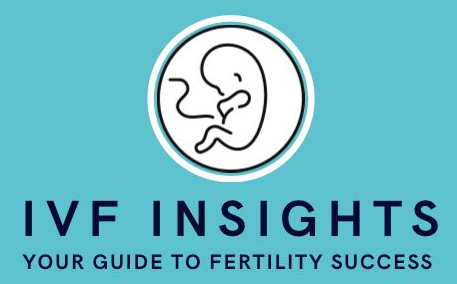
Signs That You Can't Conceive: When It's Time to Seek Help
Bringing a child into the world is a dream cherished by many, but for some, the path to parenthood can be fraught with challenges. Infertility, defined as the inability to conceive after one year of regular, unprotected intercourse (or six months for women over 35), affects millions of couples worldwide.
If you've been trying to conceive without success, it's essential to recognize the signs that you might be facing infertility and consider seeking help. In this article, we'll discuss some common signs that you can't conceive and when it's time to consult a healthcare professional.
Irregular Menstrual Cycles:
One of the most prominent signs of potential fertility issues is irregular menstrual cycles. If your periods are consistently too short, too long, or absent altogether, it could indicate hormonal imbalances, polycystic ovary syndrome (PCOS), or other underlying problems that affect your ability to conceive.

You Might Also Like: What's the Best Fertility Diet When Trying to Get Pregnant
Painful or Heavy Periods:
Experiencing severe pain or unusually heavy bleeding during your menstrual cycle can be a sign of conditions like endometriosis or fibroids, both of which can contribute to infertility.
Age-Related Concerns:
Age plays a significant role in fertility, particularly for women. If you're over 35 and have been trying to conceive for six months without success, it's recommended that you consult a healthcare provider sooner rather than later. Female fertility tends to decline with age, and the chances of conception decrease significantly after 35.
Multiple Miscarriages:
Experiencing multiple miscarriages can be an indication of an underlying fertility issue. While miscarriages can happen for various reasons, recurrent miscarriages warrant medical evaluation to identify potential contributing factors.
Pelvic Pain:
Persistent pelvic pain, especially during intercourse, could be a sign of conditions like pelvic inflammatory disease (PID) or endometriosis, which may impact fertility.
Male Factor Issues:

Infertility isn't solely a female concern. Male factor infertility, such as low sperm count, poor sperm motility, or structural problems, can also contribute to difficulties in conceiving. If your partner has any concerns about his reproductive health, it's advisable for him to seek a medical evaluation.
Unsuccessful Attempts Over Time:
Perhaps the most obvious sign is the passage of time without successful conception. If you've been trying to conceive without success for an extended period, it's essential to seek professional guidance. Remember, infertility is a common issue, and seeking help doesn't mean you're alone in your struggle.
Painful or Heavy Periods:
Certain lifestyle factors can affect fertility, such as smoking, excessive alcohol consumption, being significantly underweight or overweight, and high levels of stress. If you have any of these risk factors, addressing them can improve your chances of conception.
Seeking Help:
If you recognize any of these signs or have concerns about your fertility, it's crucial to take proactive steps. The first step is to consult a healthcare provider specializing in reproductive health. They will conduct a comprehensive evaluation, including medical history, physical exams, and possibly tests to identify potential causes of infertility.
Treatment Options:
The good news is that many causes of infertility are treatable. Treatment options may include medication to regulate ovulation, lifestyle changes, surgical procedures to correct structural issues, or assisted reproductive technologies (ART) like in vitro fertilization (IVF). The specific treatment plan will depend on the underlying cause of infertility.
Emotional Support:
Dealing with infertility can be emotionally challenging. It's essential to seek emotional support from friends, family, or support groups. Many individuals and couples find counseling or therapy helpful in navigating the emotional aspects of infertility.
In conclusion, if you've been trying to conceive without success and notice any of the signs mentioned above, don't hesitate to seek help. Infertility is a common issue, and medical professionals have a wealth of experience in diagnosing and treating the underlying causes.
With the right support and treatment, many couples struggling with infertility can realize their dream of becoming parents. Remember that you're not alone on this journey, and there is hope for building your family.



